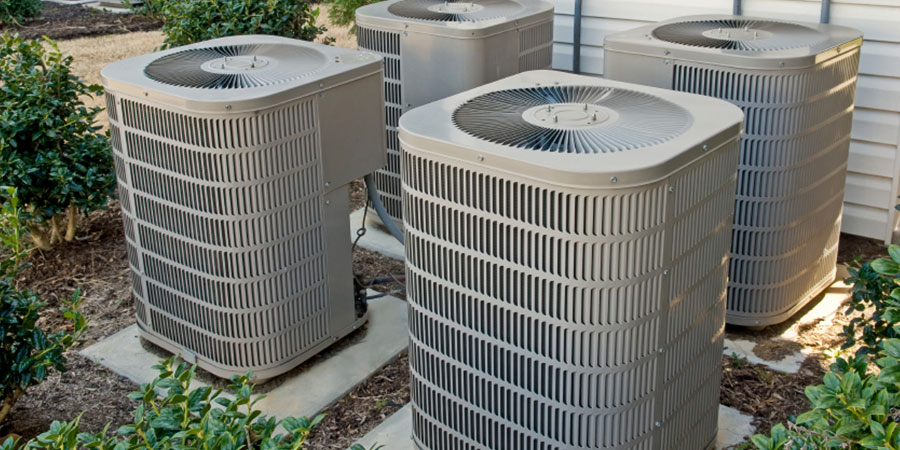Today, almost everyone in the United States has an AC. Nine out of ten American homes now have some form of air conditioning, and residential air conditioners are projected to account for 18% of annual household power consumption in the United States.
Nowadays, Americans are so used to the comforts of an AC that it’s tougher for them to deal with the heat when their air conditioner stops operating correctly.
Due to this, air conditioner repair services are constantly in demand to fix or replace the equipment.
As a homeowner, you should know that your air conditioner can stop working due to plenty of reasons. The most common ones are:
The AC has mechanical issues
The purpose of an air conditioner is to remove heat from your home and replace it with cool air using a refrigerant. AC systems contain five essential components:
- Fan motor
- The evaporator coil cools the air.
- Compressor (Electric Pump)
- Condenser coil (which transfers heat)
- Expansion Device
There are two elements to an air conditioning unit: one within the residence and one outside. A fan in the interior unit circulates air through the cooled evaporator coil to cool your home via air ducts.
The compressor, condenser coil, and fan exhaust the hot air produced by the refrigerant. The expansion valve, on the other hand, regulates the amount of refrigerant that flows between the evaporator and condenser coils.
Mechanical failure can occur with any of these components. If your fan’s motor fails, the outdoor unit will be unable to remove heat. If your compressor fails, the refrigerant cannot travel between the indoor and outdoor units.
Rebuilding some of these parts (especially the compressor) is expensive and may be relatively cheap compared to rebuilding the entire device.
Thankfully, having a trained HVAC specialist inspect your equipment on a yearly basis should prevent premature mechanical failure.
The air filter is clogged.
One of the most common causes of an AC unit not working is a failure to replace the air filter on a regular basis. Homeowners who ignore this basic task risk making their unit work harder than necessary.
In extreme cases, your unit can be completely incapacitated, and you may have to replace it because the cool air, which doesnt have anywhere to go, circulates back into the evaporator coil. This can cause it to freeze and fail.
A dirty air filter restricts the flow of air through the unit, lowering its efficiency and making it more difficult to cool your home.
Consumer Reports recommends changing the filters on central air conditioners once a month, especially if the air conditioning is always on or if you have pets who shed fur.
You should note that many of today’s smart thermostats will automatically warn homeowners when a filter needs to be replaced, so you should look out for it. When you see the warning, move with haste and replace the filter before it gets too late.
The outdoor unit is blocked.
Another factor for your house’s high temperature could be careless external landscaping and/or lawn care negligence. Shrubs and other plant life can obstruct airflow to the outdoor condenser unit.
If the condenser coil is clogged with dirt or leaves, heat transfer is hampered, and the unit must work much harder to produce cold air, potentially leading to system failure.
You should take care to ensure a decent-sized berth around and on top of their outdoor unit, as well as periodically garden hose to remove dirt and debris that may be caught in the unit’s fins.
Consumer Reports recommends leaving 2 to 3 feet (60 to 91 cm) between the outside unit and any plants or backyard structures. You also should leave 5 feet between the top of the unit and any trees that hang over it.
Your unit has low refrigerant levels.
Inside your warm home, chilly liquid refrigerant evaporates on the evaporator coil, converting to gas. The hot refrigerant gas is then piped outside into your system’s condenser, where it transmits heat to the outside air before reverting back to a liquid and repeating the cycle.
As you might know, if the refrigerant level is low, the air conditioner will not chill effectively. The amount of refrigerant in the unit has to match the manufacturer’s standards exactly.
There are two reasons why your refrigerant level is low. One issue is that too little was contributed when the system was implemented. Most likely, the level is low because your system leaks. Leaks account for 90% of low refrigerant cases.
So, merely adding extra refrigerant will not fix the problem. Bring in a skilled HVAC specialist to locate and repair the leak. After the repair is completed, the technician can charge the system with the appropriate amount of refrigerant, and your HVAC system will be ready.
Your AC has thermostat problems.
One major cause of problems is that many HVAC conditioning systems are not properly installed in the first place.
Your installers must conduct careful calculations ahead of time to determine how much cooling a residence would require, as well as to ensure that the air conditioning equipment is paired with appropriately sized ducts.
If the ducts are too small, the unit will work harder to chill the house. As a result, the components experience more wear and tear and have a shorter lifespan. And if the unit itself is too tiny for the space, the house will never be sufficiently cool.
Another issue can emerge if your thermostat is not properly calibrated, which is especially common with the older dial control type. If something goes wrong with your thermostat, your cooling system will not receive the essential instructions to achieve the ideal temperature in your home.
To solve the problem, have an AC repair services Huntington reset the thermostat, or replace it with a newer programmed digital unit, which will be more exact and help you save energy. You can remotely program the unit using a smartphone or tablet.

